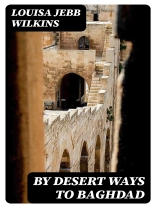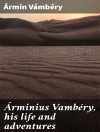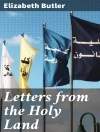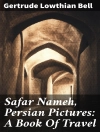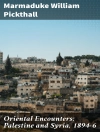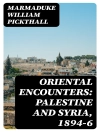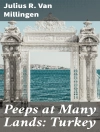In ‚By Desert Ways to Baghdad, ‚ Louisa Jebb Wilkins presents a richly textured narrative that dives deep into the complexities of travel, culture, and identity during the early 20th century. Wilkins employs a vivid descriptive style, capturing the landscapes and nuances of life across the deserts leading to Baghdad, interspersed with reflective commentary on her personal experiences and the socio-political climate of the time. This travelogue is not merely an account of a physical journey but also a profound exploration of the intersections between East and West, shedding light on the cultural narratives that shape perceptions of the Middle East. Louisa Jebb Wilkins was a notable figure in early 20th-century travel literature, influenced by her own adventurous spirit and a deep interest in the geopolitical dynamics of her time. Her extensive travels and experiences as a woman navigating predominantly male-dominated spheres provided her with unique insights, enriching her storytelling. The societal challenges and themes of exploration present in her work are indicative of her broader quest to understand and articulate the complexities of diverse cultures. For readers interested in travel literature that probes deeper than surface-level observations, ‚By Desert Ways to Baghdad‘ is a compelling choice. Wilkins’s blend of personal reflection and historical context invites readers to not only journey through the deserts but also engage with the thoughts and sentiments of a pioneering woman of her era. It is a valuable addition to the canon of travel writing, appealing to both literary scholars and those seeking adventure.
Über den Autor
Louisa Jebb Wilkins, born Louisa Francesca Jebb in 1873, is an esteemed English writer and traveller known for her vivid portrayal of the Middle East during the early 20th century. Her literary contributions offer insightful observations of the landscapes, cultures, and peoples she encountered on her ventures. Wilkins‘ most noteworthy work is ‚By Desert Ways to Baghdad‘, which was published in 1908. In this travel memoir, she eloquently narrates her adventurous journey from Aleppo to Baghdad at a time when such travels by women were uncommon and fraught with challenges. Wilkins‘ writing is rich with description and personal anecdotes, immersing readers in her experiences as she traversed the harsh yet beautiful deserts, interacted with Bedouins, and explored ancient cities. She illustrates her encounters with a blend of curiosity, empathy, and a keen analytical eye, providing a unique female perspective on a region often mythologized by her male contemporaries. Her work is not merely a travelogue but an insightful piece of cultural literature that contributes significantly to the understanding of Western perceptions of the Middle East during a period of significant change and political interest. Wilkins‘ literary style combines storytelling with a scholarly approach to observation, suffused with the spirit of adventure that marked the era’s exploration literature.
